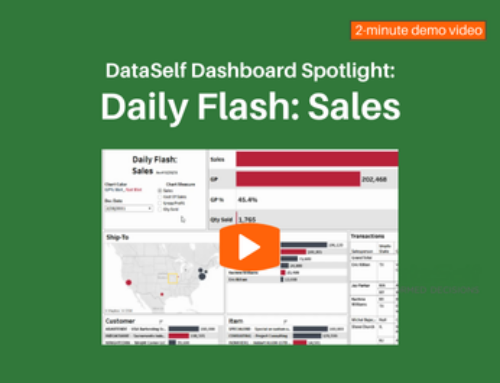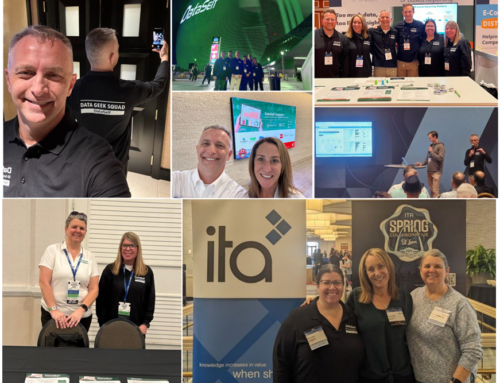The Programming Pig: Overcoming Reporting’s Technical Bias
 In The Superpowers that Create Data Heroes, we introduced the four main ‘villains’ of bad reporting and the ‘data superpowers’ needed to overcome them. Last week we battled The Data Monster, and this week we’ve set our sights on villain #2 – The Programming Pig.
In The Superpowers that Create Data Heroes, we introduced the four main ‘villains’ of bad reporting and the ‘data superpowers’ needed to overcome them. Last week we battled The Data Monster, and this week we’ve set our sights on villain #2 – The Programming Pig.
For far too long, reporting applications – especially those that tout ‘business intelligence’ – might just as well have been sold with the warning:
“Not for use by people without the words ‘programmer’ or ‘analyst’ in their job title.”
(By ‘programmer’, we mean people with extensive database expertise such as knowledge of tables, table links, filters, and database formulas for reporting purposes.)
The Villains of Bad Reporting: The Programming Pig
This is the trademark of the Programming Pig. It imposes its will on every report request you make. Want to create a new report? Programming required. Want to customize an existing report? Programming required. Want to schedule reports for automatic production and distribution? You guessed it – Programming required.
(This villain’s reach extends even to widely-used applications like Crystal ™ and Excel™ — Crystal with its programming syntax for formulas, and Excel with its programming language for macros.)
You might think that the answer to this villain is a reporting solution that requires no programming whatsoever. And there’s the catch; a reporting solution that eliminates programming is almost as bad as one that requires it.
Why?
Simple — because different organizations have different programming needs when it comes to reporting.
Organizations needing only ‘standard’ reports (with few or no modifications) shouldn’t have to resort to programming to get them. By the same token, organizations that need modified reports – whether to a lesser or greater degree — should be able to avail themselves of the corresponding toolsets.
The Programming Pig, however, makes no distinction between these organizations. The Pig insists that even the simplest report requires programming. And if you’re not a programmer, you have to find one, get on their “to-do list’ and be prepared to wait . . . days . . . weeks . . . or months for the requested report.
So what do you need in your Data Superpowers virtual utility belt to combat the Programming Pig? The answer is…
DataSelf’s ETL+ — with its “no code / low code / full code” options
These options address the varying reporting needs – and varying levels of technical expertise – of an organization’s staff. For example:
- Data Superpower: “No Code” Tools for Non-Technical Staff:
- DataSelf’s library of 8,000+ pre-configured, ready-to-run reports meet 80% of reporting needs right out of the box. Businesses with standard reporting requirements will have everything they need on day 1. What’s more, simple modifications – adding a field here, dropping a field there – are done via easy visual tools like drag-and-drop.
- Data Superpower: “Low Code” Tools for Semi-Technical Staff:
- As DataSelf ETL+ preconfigures data structures for the most popular ERP applications, custom reporting can be addressed without extensive programming expertise. Using DataSelf’s code templates and visual building blocks, configurations such as custom formulas (e.g., calculating gross profit) or bringing in external data (e.g., an Excel spreadsheet) can be quickly and easily completed.
- Data Superpower: “Full Code” Tools for Programming Staff:
- For organizations with the most sophisticated analytical needs – and the SQL wizards to support them – DataSelf provides full access to programming languages such as SQL to enable programmers to write their own TSQL from scratch, making it as sophisticated as they desire.
Fighting The Programming Pig is no simple task. DataSelf’s ETL+ Data Warehousing, combined with your choice of Tableau, Power BI, and/or Excel, empowers your staff with the no code / low code / full code data superpowers they need to do as much – or as little – programming as your business requires.
Read the next article in this series – Time Eater: Reporting in Seconds, Not Days




